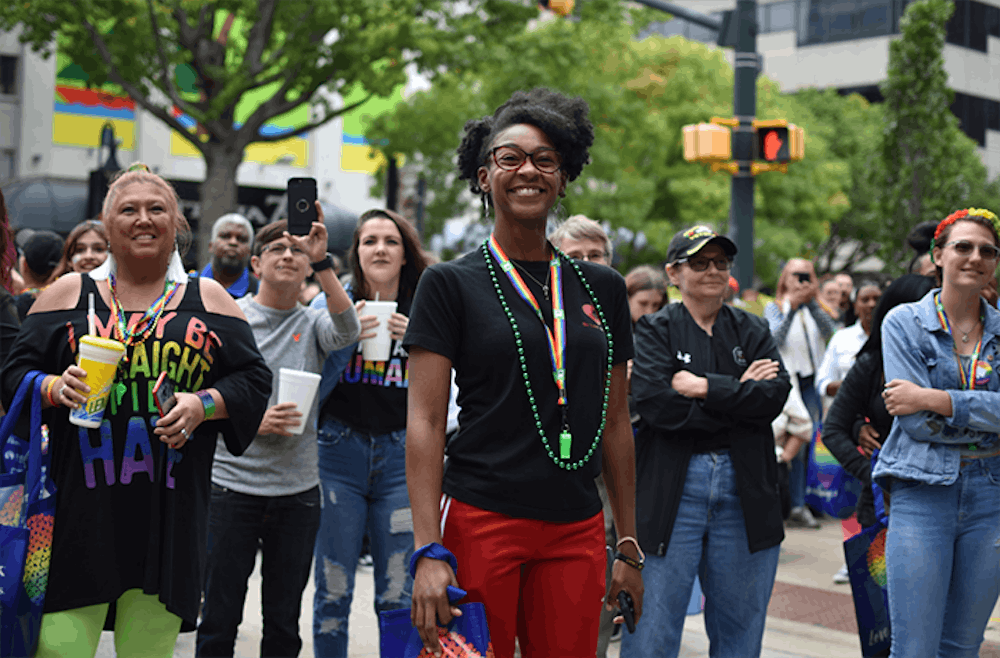The LGBTQIA+ community has made great strides in the year 2020, with the most recent successes being the endorsement of civil unions for same-sex couples made by Pope Francis and the Texas Behavioral Health Executive Council reversing a decision which fell short on its responsibility to protect clients against refusal of services "on the basis of their sexual orientation, gender identity or disability."
In lieu of this, and as we continue to progress towards a more inclusive, representative society, it seems appropriate to discuss a matter within the LGBTQIA+ community that is often overlooked and uncelebrated: bisexuality.
One of the biggest issues for the bisexual community today is that of bisexual erasure, in which one’s bisexuality is questioned, doubted or denied based on the misconception that anyone’s sexual orientation is just a “phase,” temporary confusion or sexual experimentation.
Our sexual identities play a huge role in defining who we truly are, how we present ourselves to others and our levels of self-confidence and personal pride. By celebrating identities that have a long history of discrimination, stigma and stereotype, we allow for the discovery of inclusion in social conversation and a sense of belonging thanks to the community.
In order to combat prejudice and intolerance, it is necessary to focus activism upon normalization. If previously taboo traits, such as bisexuality, are commonly seen and spoken about, then it won't seem so strange to those who don’t fully recognize the impact of social acceptance on one’s sexual development.
“The hardest part about accepting myself was the lack of representation and constantly hearing that bisexuality is a stepping stone — that I’m either moving towards being gay or back to being straight,” fourth-year student Maddie Shepherd said.
Shepherd said she finds beauty in the fact she "could fall in love with anyone."
“My sexuality is very fluid and, in the end, I think the thing that’s made it easiest to accept my sexuality is that I have the pleasure of getting to love any type of person," she said.
This beauty is often misconstrued by preconceived notions.
Many bisexual people in relationships are often labeled using either of two extremes depending on their partner’s gender, which, in turn, belittles or ignores their sexual orientation entirely.
“A lot of people are stuck on this idea that focuses on straight being normal and gay is weird or abnormal because it’s easy to understand polar opposites,” Jalen Brooks-Knepfle, co-president of the Carolina Equality Alliance, said. "It's difficult for people to think of something as traditional as sexual orientation as a spectrum."
Brooks-Knepfle, a third-year student at the university’s law school, said the Carolina Equality Alliance has held panels during pride week for anyone to openly discuss their experience in the LGBTQIA+ community. The panels were prompted by the Supreme Court decision in June 2020 stating that employers cannot discriminate on the basis of sexual orientation or gender.
She said she was stunned when she saw how many people showed up for pride week, with much appreciation to her law professors sporting rainbow heart-shaped pins.
These professors' mere acts of showing love set examples that everyone in the community has a right to respect, inclusion and representation.
“[The Carolina Equality Alliance's] goal, in addition to focusing upon legal challenges faced by the LGBTQ+ community, is to make it the most inclusive we can at the law school,” Holly James, co-president of the Carolina Equality Alliance, said.
After transferring from a homophobic and racist environment, she found appreciation in Carolina's law school's efforts to include the LGBTQIA+ community. James said she fully wanted to embrace the opportunity to further that support.
In a study conducted by The Journal of Sex Research in 2018, there was a shared belief among heterosexual men and women that bisexual women were more promiscuous because of their sexuality, thus furthering the impact of hypersexualization.
Furthermore, according to a National Intimate Partner and Sexual Violence Survey conducted in 2010, bisexual individuals often face significantly higher rates of depression, anxiety, substance abuse and suicide due to intimate partner violence and a higher lifetime prevalence of rape and sexual violence and abuse than lesbian, gay or straight individuals.
Bisexual erasure undermines and overlooks an important aspect of a person's identity, and James said these prevalent issues in the bisexual community can be combatted by raising awareness.
“I am working to make a safe, comfortable, uplifting space not only for people like myself but also for all law students no matter their race, sexual orientation, gender,” James said. “That’s why I find my work so empowering.”
Empowering and remembering that love is love are some things to be conscious of in our community. Individuals' identities depend on them.

